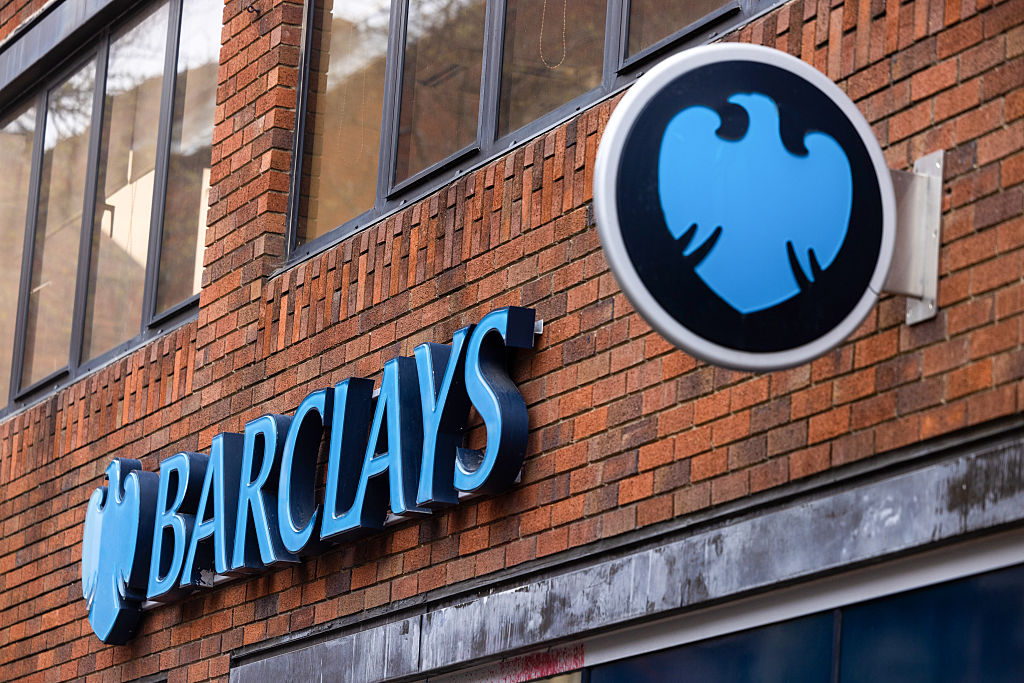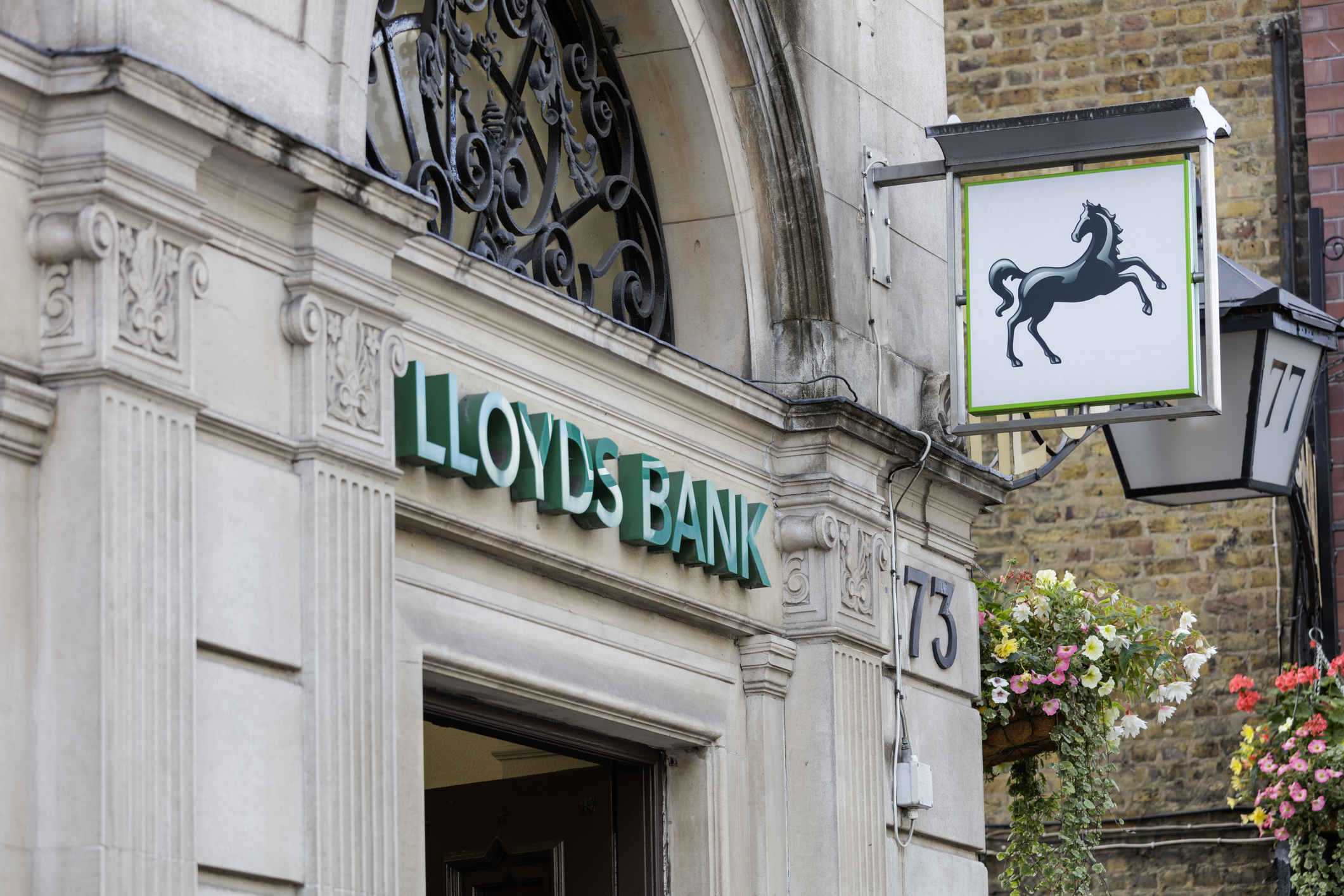The appeal of a private bank
Private banks have long been surrounded by an air of prestige. But is the service they provide worth the extra cost?

Get the latest financial news, insights and expert analysis from our award-winning MoneyWeek team, to help you understand what really matters when it comes to your finances.
You are now subscribed
Your newsletter sign-up was successful
Want to add more newsletters?

Twice daily
MoneyWeek
Get the latest financial news, insights and expert analysis from our award-winning MoneyWeek team, to help you understand what really matters when it comes to your finances.

Four times a week
Look After My Bills
Sign up to our free money-saving newsletter, filled with the latest news and expert advice to help you find the best tips and deals for managing your bills. Start saving today!
If you're asked to picture a private bank, the things that spring to mind may be marble halls, subterranean vaults, hushed voices and perhaps Swiss accents. Today's private banks are, of course, more high-tech but the reasons for people using private banks don't seem to have changed much over the years. Some might use a private bank because they consider it to be prestigious; some might want the high-class service; while others like the perceived discretion.
As the word "private" implies, this type of bank has long held a reputation for privacy and secrecy. Although much of this has changed since the cultural shift towards a more transparent digital-banking system, some banks remain strictly private. As the PR person of one well-known bank told me, "the nature of the discreet relationships we have with our customers means we don't disclose information on levels of wealth or services", and therefore have "no wish to appear in your article". But is being a client with a private bank worth the high fees, or is it simply a tax on snobbery?
Banking for the affluent
The boundaries of private banking can be tricky to pinpoint. In the most traditional sense, private banks are independent banks that were originally family run and founded in the 17th or 18th century, such as Weatherbys or C. Hoare & Co. But today, many high-street banks such as Lloyds, HSBC and Barclays provide "premium banking" or "private banking" services.
MoneyWeek
Subscribe to MoneyWeek today and get your first six magazine issues absolutely FREE

Sign up to Money Morning
Don't miss the latest investment and personal finances news, market analysis, plus money-saving tips with our free twice-daily newsletter
Don't miss the latest investment and personal finances news, market analysis, plus money-saving tips with our free twice-daily newsletter
What these private banks have in common, though, is the requirement for customers to be sitting on a certain amount of money. At Brown Shipley, private clients need to have "investable assets" which means money that is not tied up in your main residence of at least £500,000. At Arbuthnot Latham you need to have investable wealth in excess of £1m. Coutts' clients have to invest or bank about £1m, or earn half a million a year.
At the private-banking arms of high-street banks the threshold is lower. To qualify for HSBC Premier, you need to have savings or investments of at least £50,000 with HSBC in the UK; or an annual income of at least £100,000, in conjunction with a mortgage of at least £300,000, or another product taken out through its financial advisory service. At Lloyds, customers typically have at least £250,000 in savings, investments or personal pensions, or a sole annual income of at least £250,000.
If you're considering going to a private bank, it helps to know what level of service you can expect. Some private banks, such as Brown Shipley and Arbuthnot Latham, can offer a wide range of advisory services, including advice on tax-efficient investments, estate and inheritance-tax planning, pensions and investment management. "We use cash-flow forecasting to demonstrate to clients how they will be able to fund their future," says Liz Bottomley of Arbuthnot, when asked how it compares with high-street banks' private services. "We spend time with our clients to really get to know them and we continue to offer a high-touch personal service throughout our relationship. We are not bound by the constraints of a box-ticking approach."
Private banks: Four Seasons versus the Premier Inn
For some, the appeal of private banking lies in other perks. "Clients like being in the club'," says Stuart Newey, head of banking at Coutts, comparing the bank to a private members' club. The bank is beginning to host more events where clients can network with each other. Coutts was established in 1692 and has provided the royal family with banking services since Queen Anne's reign although as Newey points out, "We have a network of entrepreneurs not just royalty". Today Coutts is part of the RBS group. It provides banking, lending and investment services, including early-stage investment opportunities and wealth services relating to inheritance tax, philanthropy and the running of a family business. The bank also provides financial education for clients' children after all, "80% of wealth doesn't reach the third generation", says Lenka Setkova, head of Coutts Institute.
Unsurprisingly, Coutts' services are geared towards a certain type of customer. For example, "If a client buys a car in a showroom, it's not a problem", Newey explains in contrast to retail banks, which have more constraints when it comes to transactions involving large sums. Similarly, if clients travel, they don't need to ring up the bank to warn Coutts they're going abroad. Another advantage is that Coutts can easily cope with clients' complex financial histories. At a retail bank, Newey argues, "you get the same fraud profiling, and you're using the same phone lines as everyone else". At Coutts, an online algorithm recognises whether it's the client who is using online banking by how they use their keyboard, how they swipe and what language their phone is set to. As Newey puts it, describing the difference between the high street and traditional private banks, "The Premier Inn and the Four Seasons both provide a bed you can sleep in, but the latter knows what settings you like".
As the range of private-banking services increases, so do the fees. That said, charges vary widely across the industry, says Lee Goggin of FindaWealthManager.com. Some banks will charge 1.75% of assets under management, says Goggin. While it's hardly bargain-basement levels, it may well be significantly lower than you might be charged "by an independent financial adviser, who will often outsource the management of portfolios to a wealth manager and then charge a hefty premium on top for their advice", he says. Unfortunately, it's not easy to compare costs many private banks only specify fees upon application, and there are no "comparison sites" for private banking. However, as an example of what to expect, at a more basic level, for a "sole banking relationship" at Coutts you can expect to pay an annual tariff of £900, charged quarterly, while C. Hoare & Co. charges £60 a month for each current account held, though these fees can be waived if you hold more than a certain minimum amount with the bank in question.
High-street banks get in on the action
Even if you decide just to use the private-banking service of a high-street bank, the expectation is that you will still get better service than if you pop into a branch at lunchtime to pay a bill. At HSBC, for instance, you get a "dedicated relationship manager". At Lloyds it's an "advice manager" who can help clients draw up a financial plan, providing advice on areas including investments, planning for retirement, wealth and inheritance tax.
Challenger banks have also moved into the private-banking sector. Metro offers a private-banking service to those with £1m of assets or borrowings with the bank, which can include a mortgage. "We don't do investment advice or insurance sales," says Julie Barnsley, head of private banking at Metro. "We just do the banking bit" which includes current accounts, savings, mortgages and loans, coupled "with an old-fashioned relationship service". Its managers are recruited from other private banks, and they have around 40 to 60 customers each. For an entrepreneur, a manager might oversee their personal banking and that of their family, the trading of the business, and the lending for a portfolio of properties.
This certainly sounds a far cry from the anonymous treatment and sometimes garbled responses I get as a normal client with my bank. The closest I came to premium treatment was when my mortgage adviser was 30 minutes late to an appointment and promised me a bottle of wine and chocolates as an apology. They never arrived.
So should you use a private bank?
This is probably the key attraction of a private bank the relationship. Indeed, when a 2015 Deloitte survey with private banks and wealth managers asked what would most differentiate their institution from others in the next five years, the overwhelming majority answered: "client relationships". "In many cases, when clients leave an institution, it is because of a lack of understanding with the relationship manager and not investment performance," reported the survey. So if you're looking for a personal manager for your finances, for a one-stop financial shop, or you're keen to network at client events through your bank, then private banking might be for you provided you can afford it. But otherwise, these services could be unnecessarily expensive. If you take a more hands-on approach with your finances, or if low cost is your first priority, it might be better to give it a miss.
Get the latest financial news, insights and expert analysis from our award-winning MoneyWeek team, to help you understand what really matters when it comes to your finances.
Lucy has previously written for the iPaper and MoneyWeek, writing about a variety of financial topics such as funds, the economy and bank accounts.
-
 Should you buy an active ETF?
Should you buy an active ETF?ETFs are often mischaracterised as passive products, but they can be a convenient way to add active management to your portfolio
-
 Power up your pension before 5 April – easy ways to save before the tax year end
Power up your pension before 5 April – easy ways to save before the tax year endWith the end of the tax year looming, pension savers currently have a window to review and maximise what’s going into their retirement funds – we look at how
-
 Nationwide promises to protect all its branches from closures until at least 2030
Nationwide promises to protect all its branches from closures until at least 2030The building society has extended its pledge to keep all high street Nationwide and Virgin Money branches open, now until at least 2030.
-
 Barclays bank switch: how to get £400 'free' cash by moving accounts
Barclays bank switch: how to get £400 'free' cash by moving accountsBarclays has unveiled a £400 current account switching offer, running alongside its £500 ISA transfer deal. Which accounts are on offer, and are you eligible?
-
 Green mortgages: how do they work and how much can you save?
Green mortgages: how do they work and how much can you save?Most high-street lenders now offer some kind of green mortgage deal. We look at who’s eligible, how to apply and the mortgage rates and cashback on offer
-
 Thousands of Brits switch to Nationwide, Monzo and NatWest – which banks are least popular?
Thousands of Brits switch to Nationwide, Monzo and NatWest – which banks are least popular?We look at the most and least popular banks and building societies as current account bank switches reach a record high. Is it worth moving your money?
-
 Barclays to pay millions in compensation after IT outage chaos
Barclays to pay millions in compensation after IT outage chaosBarclays intends to compensate customers after an IT outage caused payment problems for three days
-
 Lloyds Bank returns with £175 bank switch bonus – is it worth moving banks?
Lloyds Bank returns with £175 bank switch bonus – is it worth moving banks?Lloyds Bank is offering customers £175 to move to one of its Club accounts. We look at whether it’s worth taking advantage of the bank switching bonus
-
 Barclays reports large spike in romance scams - here's how to avoid them
Barclays reports large spike in romance scams - here's how to avoid themThe UK bank found a 139% increase in the total value of romance scams
-
 Nationwide, HSBC, Barclays and Virgin Money customers hit by payment issues
Nationwide, HSBC, Barclays and Virgin Money customers hit by payment issuesThe problems have been compounded as Friday is the last day of the month when many people are paid by their employer